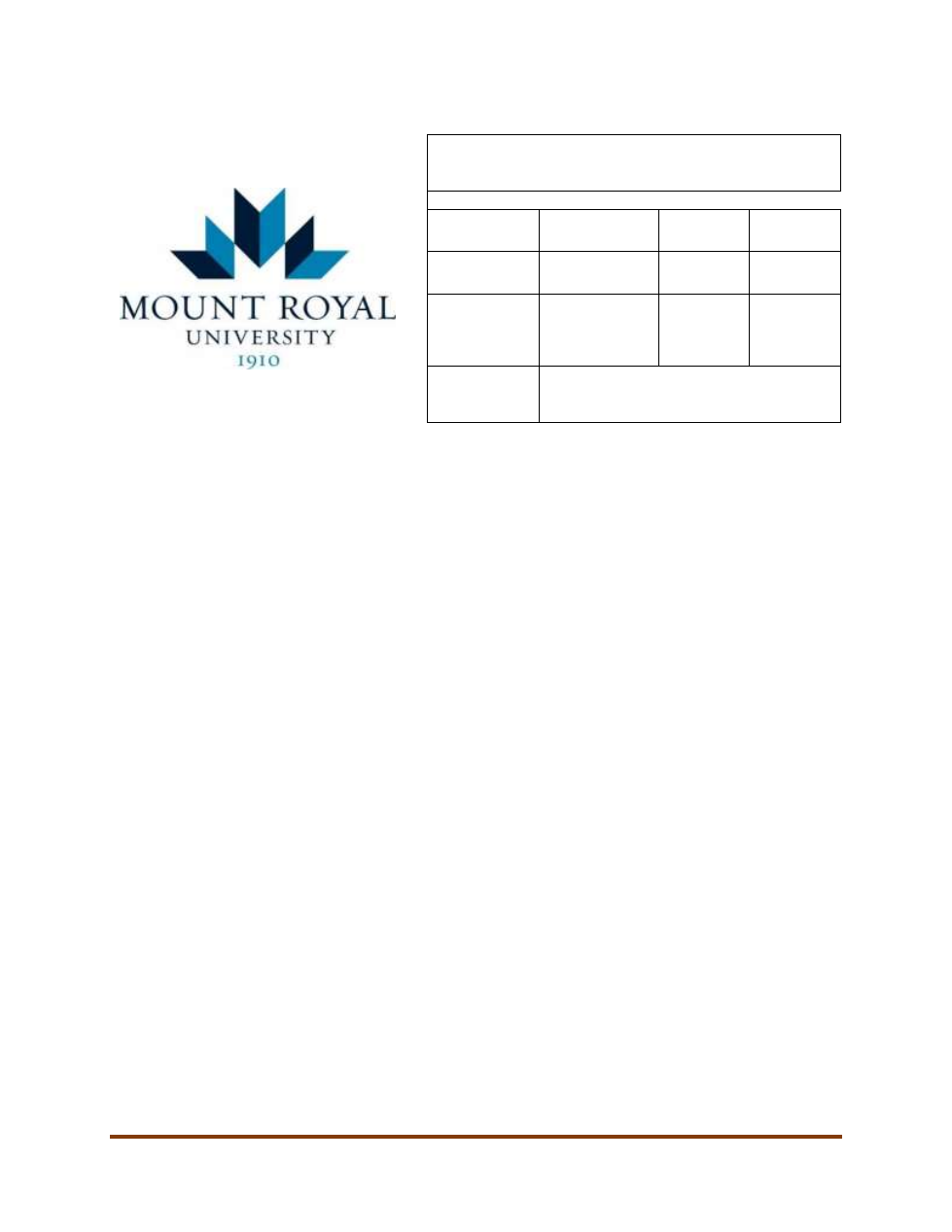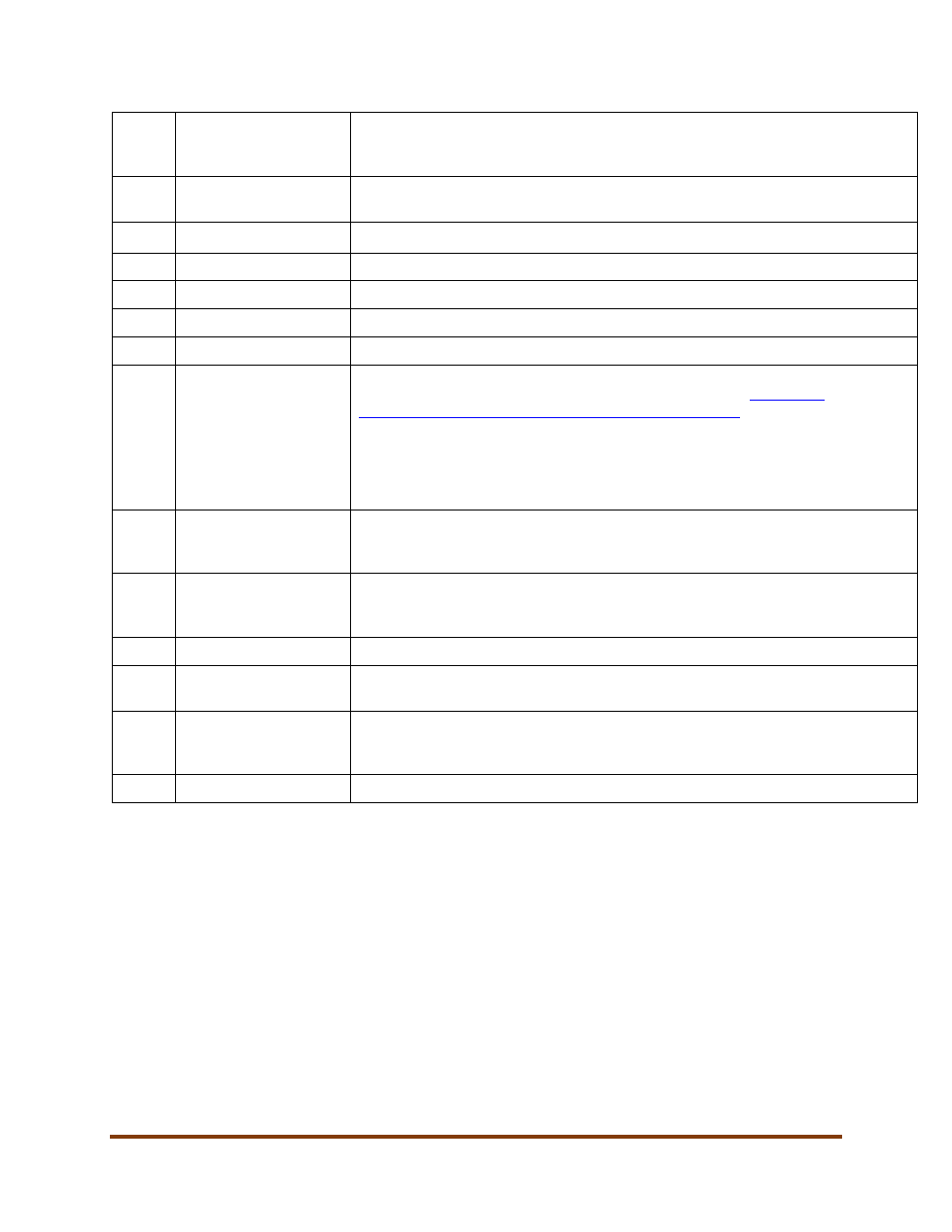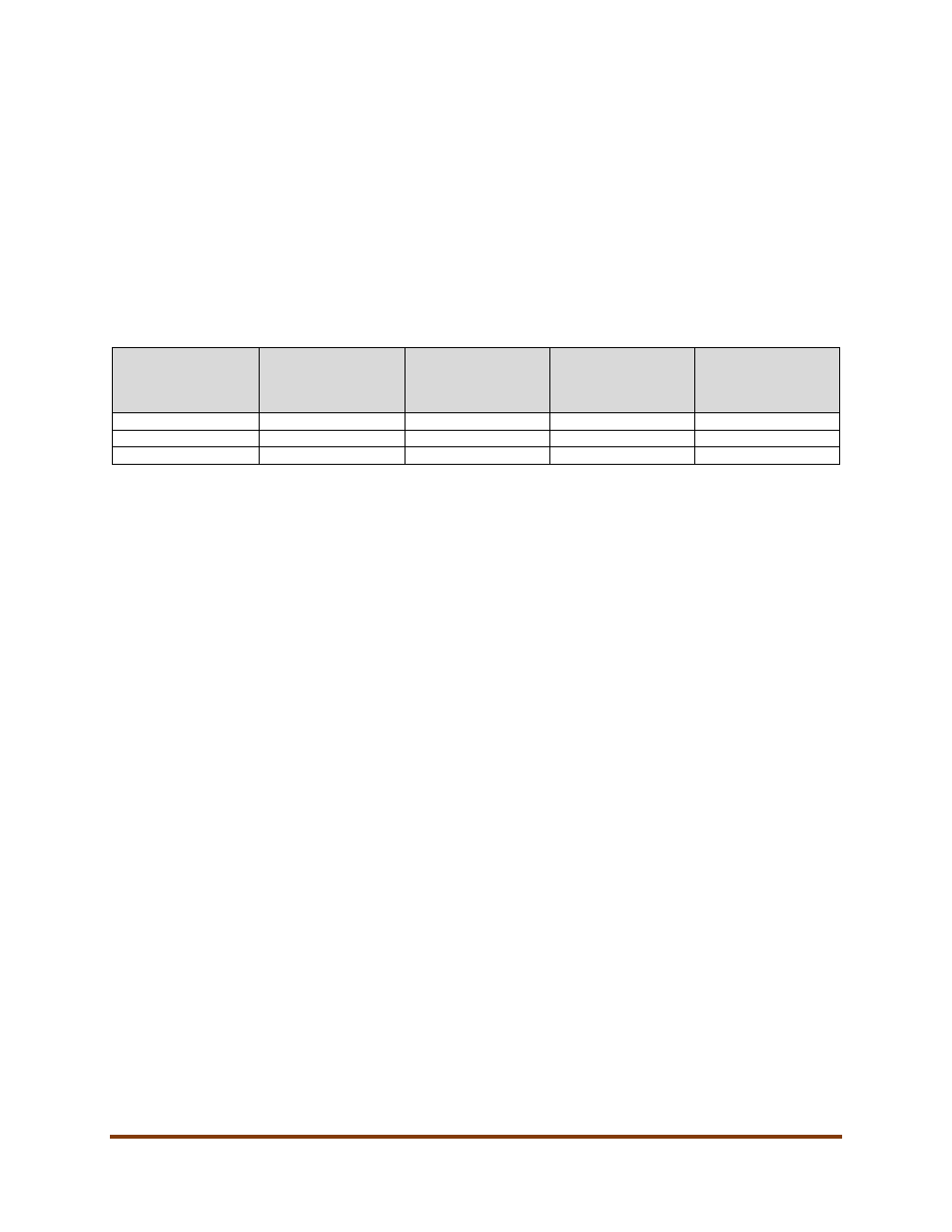
Procedure for Conflict of Interest in Research
Page 1 of 6
PROCEDURE
FOR
CONFLICT
OF
INTEREST
IN
RESEARCH
Procedure
Type:
Academic
Initially
Approved:
February 17,
2023
Procedure
Sponsor:
Provost and VP
Academic
Last
Revised:
Administrative
Responsibility:
AVP, Office of
Research,
Scholarship and
Community
Engagement
Review
Scheduled:
February 17,
2028
Approver:
General Faculties Council
A.
PROCEDURES
1.
GENERAL
1.1.
This Procedure aims to provide an environment in which Research is conducted
in a way that ensures integrity and a high ethical standard, thereby enabling
public and professional trust and confidence in the manner in which Research is
conducted at the University. Researchers must use good judgment, professional
commitment and ethics to protect themselves and the University from Conflicts of
Interest.
1.2.
Conflicts of Interest related to Research activities have significant potential for
affecting the reliab
ility of Research and both the Researcher’s and the
University’s reputations. Conflicts of Interest have the potential to bring Research
conducted at the University into disrepute and impact external funding
opportunities. Therefore, particular vigilance is required in identifying, disclosing
and handling Conflicts of Interest.
1.3.
Disclosures of Conflicts of Interest under this Procedure are the personal
information of the Researcher and should be treated as confidential and only
disclosed as may be necessary.
2.
DISCLOSURE OF CONFLICTS OF INTEREST
2.1.
Researchers must disclose any Conflicts of Interest in their Research activities to
the AVP, RSCE as set out in section 3. Researchers must ensure that any
disclosure provides sufficient information about the Conflict of Interest for the
AVP, RSCE to fully understand the nature and scope of the Conflict of Interest.
2.2.
Researchers may not proceed with any Research activities in which a Conflict of
Interest has not yet been approved in accordance with section 3.
2.3.
Where the circumstances surrounding a Conflict of Interest for Research
activities that have been approved materially change, the Researcher will submit
a further disclosure of the Conflict of Interest for review by the AVP, RSCE. The

Procedure for Conflict of Interest in Research
Page 2 of 6
AVP, RSCE will review this subsequent disclosure in accordance with the
process articulated in section 3.
2.4.
Where Research activities were denied due to a Conflict of Interest and the
circumstances surrounding the Conflict of Interest have changed, the Researcher
may request the AVP, RSCE reconsider their decision. The AVP, RSCE will
review such a request in accordance with the process articulated in section 3.
2.5.
If the AVP, RSCE has a Reasonable Apprehension of Bias with respect to a
disclosure of a Conflict of Interest or the AVP, RSCE is engaged in the Research
subject to the Conflict of Interest, the Provost will act in the role of the AVP,
RSCE with respect to the assessment of the Conflict of Interest.
2.6.
Researchers shall complete a form which acknowledges that they have read the
Procedure and Policy and agree to abide by it.
2.7.
Researchers will have an opportunity to disclose any Conflicts of Interest through
the funding application processes managed by the Office of Research,
Scholarship and Community Engagement.
3.
ADDRESSING CONFLICTS OF INTEREST
3.1.
Upon receiving a disclosure of a Conflict of Interest from a Researcher, the AVP,
RSCE will assess the Conflict of Interest and determine if the Researcher may
proceed with the Research activities.
3.2.
Researchers will not participate in any Research activities which are subject to a
Conflict of Interest while the Conflicts of Interest are being assessed.
3.3.
The AVP, RSCE can ask for further information or records from the Researcher
in order to assess the Conflict of Interest.
3.4.
In evaluating a Conflict of Interest, the AVP, RSCE should consider the following
factors:
a)
The impact on the Researcher’s ability to satisfy their obligations as a
researcher;
b)
The degree to which it may compromise a Researcher’s professional
judgement in conducting or reporting Research;
c) The degree to which the proposed action will be detrimental to:
i.
the reliability of the Research,
ii.
the public and professional trust and confidence in the Research,
iii.
the Researcher’s professional reputation, and
iv.
the
University’s reputation as an organization which conducts
Research with integrity and a high ethical standard;
d) The extent to which the Conflict of Interest may be addressed through further
steps taken by the Researcher, the University or others.
3.5.
Following their assessment, the AVP, RSCE may:
a) approve the Researcher proceeding with the Research activities
notwithstanding the Conflict of Interest;
b) approve the Researcher proceeding with modifications to or conditions on
the Research Activities; or
c) deny approval of the Researcher proceeding with the Research activities due
to the Conflict of Interest.

Procedure for Conflict of Interest in Research
Page 3 of 6
3.6.
The AVP, RSCE will provide their decision to the Researcher in writing. If the
AVP, RSCE has approved the Researcher’s participation in the Research
activities, the AVP, RSCE will note any modifications to or conditions on the
Research activities mandated to address the Conflict of Interest.
3.7.
Where an individual is concerned that a Researcher has an undisclosed Conflict
of Interest with respect to their Research, that individual may either:
a) if they feel comfortable doing so, note the Conflict of Interest to the
Researcher and provide the Researcher with an opportunity to disclose the
Conflict of Interest; or
b) report the alleged Conflict of Interest as an allegation of Misconduct under
the Procedure for Addressing Allegations of Misconduct.
4.
REVIEW
4.1.
Where the AVP, RSCE has denied approval to proceed with the Research
activities, the Researcher may request that the Provost review the AVP, RSCE’s
decision.
4.2.
Such a request for review must be set out in writing and provide the reasons for
which the Researcher believes that the Research activities should proceed and
how the Conflict of Interest can be addressed.
4.3.
The Provost will review the AVP, RSCE’s written decision and the Researcher’s
written request for review.
4.4.
The Provost may:
a)
confirm the AVP, RSCE’s decision to deny approval of the Researcher
proceeding with the Research activities;
b) approve the Researcher proceeding with the Research activities
notwithstanding the Conflict of Interest; or
c) approve the Researcher proceeding with modifications to or conditions on
the Research Activities.
4.5.
The Provost will provide a written decision and explanation to the Respondent of
the Provost’s decision. The Provost’s decision is final.
5.
INTERSECTION WITH HREB PROCESSES
5.1.
Conflicts of Interest directly related to Research involving human participants
must be disclosed as part of the ethics review process under the Ethics of
Research Involving Human Participants policy. Disclosure under the ethics
review process is a separate process from that described within this Procedure.
Researchers must disclose and receive approval for any Conflicts of Interest
through both processes. However, the University will endeavor to harmonize
decisions regarding the approval and clearance of Conflicts of Interest.
5.2.
The AVP, RSCE may choose to share a disclosure of a Conflict of Interest with
the Human Research Ethics Board. This decision should take into account
whether such disclosure may jeopardize the independent decision making of the
HREB. For example, it may be appropriate that the HREB not know that a
research sponsor is considering a major endowment. Conversely, the HREB
should know about COI that would affect deliberations regarding COI disclosure
on a consent form.

Procedure for Conflict of Interest in Research
Page 4 of 6
6.
EXAMPLES OF CONFLICT OF INTEREST
6.1.
The following is an illustrative list of scenarios where Conflicts of Interest can
arise in the context of Research. While these serve as examples of Conflicts of
Interest, any activity which meets the definition of Conflict of Interest is subject to
the Policy and this Procedure.
a) Contributing to a decision about the scholarly work of a Closely Associated
Person.
b) A Researcher authorizing the purchase of services, supplies or equipment
using grant funds from a source in which the Researcher or Closely
Associated Person has an interest.
c) Where a Researcher or Closely Associated Person has a Financial Interest
in the outcome of the Research.
d) Entering into an agreement or understanding with a grant provider wherein
advantages are promised, formally or informally, for Research findings
favourable to the grant provider.
e) Supervising Research personnel who are employed by a business in which
the Researcher has personal interest or Financial Interest.
f) Supervising Research of a Closely Associated Person.
g) Entering into a licensing agreement for the development of intellectual
property generated as a result of an individual’s University-affiliated
Research, with a company in which the individual has a personal or Financial
Interest.
B.
DEFINITIONS
In these procedures the following terms, when capitalized, shall have the following meanings:
(1)
AVP, RSCE:
the Associate Vice-President, of Research, Scholarship and Community
Engagement
(2)
Closely
Associated
Person:
refers to a person related to a Researcher by blood, adoption, marriage or
common-law marriage, or with whom the Researcher has a close personal
relationship; it may also include an individual with whom the Researcher has
previously had such a relationship.
(3)
Complainant:
any person who makes an allegation of Misconduct
(4)
Conflict of Interest:
a conflict of interest may arise when activities or situations place the Researcher
in a real, potential or perceived conflict between their responsibilities related to
research, and their personal, institutional or other interests. These interests
include, but are not limited to, business, commercial or financial interests
pertaining to the Researcher, their family members, friends or their former,
current or prospective professional associates. Examples of Conflicts of Interest
can be found in the Procedure for Conflicts of Interest in Research
(5)
Employee:
means individuals who are engaged to work for the University under an
employment contract, including faculty, staff, exempt Employees and
Management Employees
(6)
Financial Interest
refers to the receipt or expectation of anything of monetary value, including pay
or salary or other payments for services (e.g., consulting fees, bonuses,

Procedure for Conflict of Interest in Research
Page 5 of 6
speaker’s fees, or honoraria), equity interests, security or other ownership
interests, and intellectual property rights (e.g., patents, copyrights, royalties or
options related to such rights).
(7)
Framework:
refers to Tri-Council Agency Framework: Responsible Conduct of Research
(2021), as amended
(8)
Investigator:
the person conducting the preliminary investigation as defined in section 4.2.
(9)
Misconduct:
as defined in Section 2 of the Policy
(10)
Policy:
refers to the Responsible Conduct in Research Policy
(11)
Procedure:
refers to this Procedure for Addressing Allegations of Misconduct in Research
(12)
Provost:
the Provost and Vice-President, Academic
(13)
Research:
research is an undertaking intended to extend knowledge through a disciplined
inquiry and/or systematic investigation as defined in the (
Tri-Agency
Framework: Responsible Conduct of Research (2021))
.
Research also includes activities related to one or more of scholarly or artistic
work which occurs through discovery, integration, teaching and learning, or
application of knowledge and is usually disseminated through peer-reviewed
processes.
(14)
Researcher:
any Employee, Student or individual affiliated with the University (e.g., research
associates, emeriti, adjuncts, visiting scholars, etc.) participating in Research at
or under the auspices of the University
(15)
Reasonable
Apprehension of
Bias:
a bias or other interest that would create a conflict that would rise to the level of
disqualifying an Investigation Committee member from fairly assessing an
allegation of Misconduct
(16)
Respondent:
an individual alleged to have committed Misconduct
(17)
Student:
means any individual who maintains an affiliation as a learner in the University’s
educational community
(18)
Tri-Agency:
means the Canadian Institutes of Health Research (CIHR), the Natural Sciences
and Engineering Research Council (NSERC) and the Social Sciences and
Humanities Research Council (SSHRC)
(19)
University:
means Mount Royal University
C.
RELATED POLICIES
● Animal Care Policy
● Code of Conduct - Employee
● Code of Student Academic Integrity Policy
● Code of Student Community Standards Policy
● Ethics of Research Involving Human Participants Policy
● Responsible Conduct in Research Policy
D.
RELATED LEGISLATION
● Alberta Freedom of Information and Protection of Privacy Act
● Canada’s Food and Drug Act
● The Canadian Environmental Assessment Act

Procedure for Conflict of Interest in Research
Page 6 of 6
E.
RELATED DOCUMENTS
● Procedure for Addressing Allegations of Misconduct in Research
● Procedure for the Collection, Storage and Authenticity of Research Data
● Tri-Council Agency Framework: Responsible Conduct of Research (2021)
● Tri-Council Policy Statement: Ethical Conduct for Research Involving Humans (2018)
● Tri-Agency Research Data Management Policy
F.
REVISION HISTORY
Date
(mm/dd/yyyy)
Description of
Change
Sections
Person who
Entered Revision
(Position Title)
Person who
Authorized
Revision
(Position Title)





